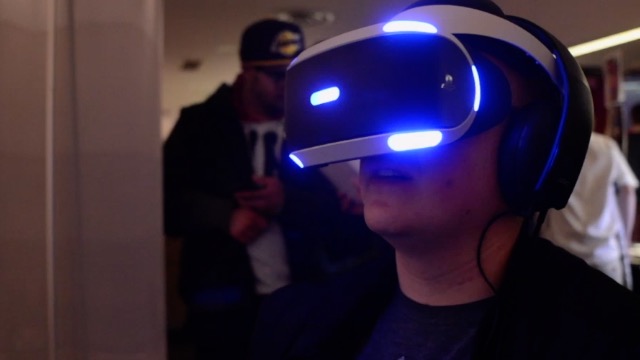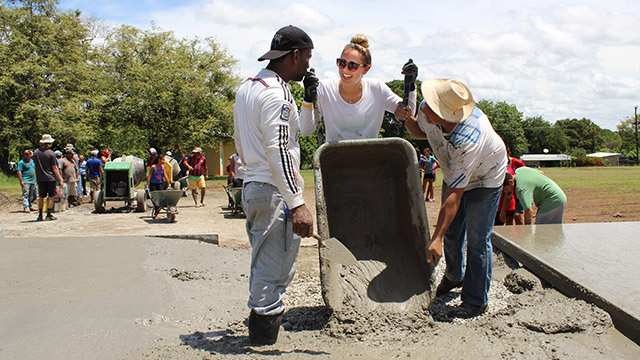To moving forward
Pro Football Hall of Fame running back Terrell Davis has a career peppered with accomplishments. He has won two Super Bowls, an NFL MVP Award and is one of just seven players in league history to rush for more than 2,000 yards in a season.
But when he looks back at his life in football, one year stands out to him.
That year was 1990.
“We always ask the question, ‘If you could go back to any year, what year would it be?’ For me it’s always 1990, my freshman year at Long Beach State,” Davis said. “That was the best time of my life.”
But it wasn’t without its challenges, unforeseen barriers that could have derailed his Hall of Fame football career.

Davis spent two years on the scrappy Long Beach State football team in 1990 and 1991. He sat out his first year and played five games his second season, rushing for 262 yards. The modest beginning to his football career turned a world of uncertainty, starting with the death of the head coach after his first year.
Before the 1990 season, legendary coach George Allen came out of retirement to take over the Long Beach State program and recruited Davis, a running back from San Diego Lincoln High. Allen passed away Dec. 31, 1990, throwing the program into doubt.
Football survived one more season before then-president Curtis McCray disbanded the program because of financial shortfalls resulting from a tightening state budget, a decline in fan support and rising operations costs.
To continue his football career, Davis had no choice except to find another school. He eventually landed at University of Georgia. Although his ending at Long Beach State was bittersweet, he said he has an incredible amount of cherished memories from his time in Long Beach.
”I had so much fun at Long Beach. Man, I did,” he said. “That was my first college. You come from high school and you go to college and the memories I had there of the first two years – coming into training camp in 1990 … most of my friends today are guys that I met at Long Beach State.”
Davis went largely unrecruited out of high school and decided to follow his brother, Reggie Webb, to Long Beach State. He said playing with Webb was one of the experiences that he cherishes most. They had never played organized football with each other until that season.
“I don’t know if I thought about it that much while it was happening. I knew it was cool, but I never reflected on how great that was because when you’re playing ball you’re just trying to win games and be the best you can be,” Davis said. “You’re kind of in a moment.”

Davis’ other memorable college experience involved playing for Allen, who was one of the few coaches who recruited Davis. Davis redshirted as a freshman under Allen to gain an extra year of eligibility, but Allen passed away before Davis played a down. Although their time together was brief, Allen gave Davis a confidence boost, along with a nickname.
“He called me Secretariat,” Davis said, recalling a comparison Allen made between Davis and the famous racehorse. “So, if I’m getting the stamp of approval from this coach, I have to be pretty good. I’m special. Something is going on here. If he names me Secretariat and he’s pretty high on you … that felt good.”
Allen’s link to the NFL gave Davis a bit of swagger, knowing that he was playing for someone who had been involved in football’s highest level, especially competing at a mid-major Division I school.
“The first time I was connected to the NFL was through George Allen,” Davis said. “He would have pro scouts come in there and do all this stuff, so it was a great time.”
Davis’ experience at Long Beach State also gave him the necessary tools he needed to handle adversity. First, Davis severely injured his ankles during his redshirt freshman year, which limited him to the five games. He said it taught him about the mental fortitude one needed to play through pain. Also, the team struggled with a 2-9 record, which was difficult for him.

When he program was disbanded, Davis needed to figure out his football future and fast. It was a lot for Davis to handle, and there certainly were some times when he had doubts, but eventually he learned resilience and how to thrive under pressure. These attributes would serve him well in the future, especially when he ran up against a new set of challenges.
After a standout career at Georgia, Davis was taken in the sixth round of the NFL Draft by the Denver Broncos. He played for seven seasons in Denver, enduring migraines and injuries.
Davis fought through one particularly blinding migraine on his way to being named Super Bowl XXXII Most Valuable Player in the Broncos’ victory against the Green Bay Packers in 1997. After that season, the running back did all he could to keep his NFL career alive for three more seasons before succumbing to devastating knee injuries. He retired before the 2002 regular season.
“We always ask the question, ‘If you could go back to any year, what year would it be?’ For me it’s always 1990, my freshman year at Long Beach State, that was the best time of my life.”
Davis finished his career as one of six players to rush for more than 1,000 career yards in the postseason. He rushed for at least 100 yards in seven of his eight playoff games, and his 142.5 yards per game in the playoffs is a league record.
“Probably the biggest lesson at Long Beach was one of perseverance,” he said. “I would always look back to Long Beach and be like, ‘Hey, I had to fight through this at Long Beach, so I know I can do this now because I already experienced this.’”
Davis did have his fair share of enjoyment off the football field, as well, with friends he made on the team. Their bonds last to this day.
Long Beach State was so important to Davis that he made sure to include it in his Pro Football Hall of Fame speech last year. For Davis, it was vital to involve the school since it had such an impact on him.
“Even though I didn’t stay there a long time, that year-and-a-half was enough to be etched in my heart,” he said.




















